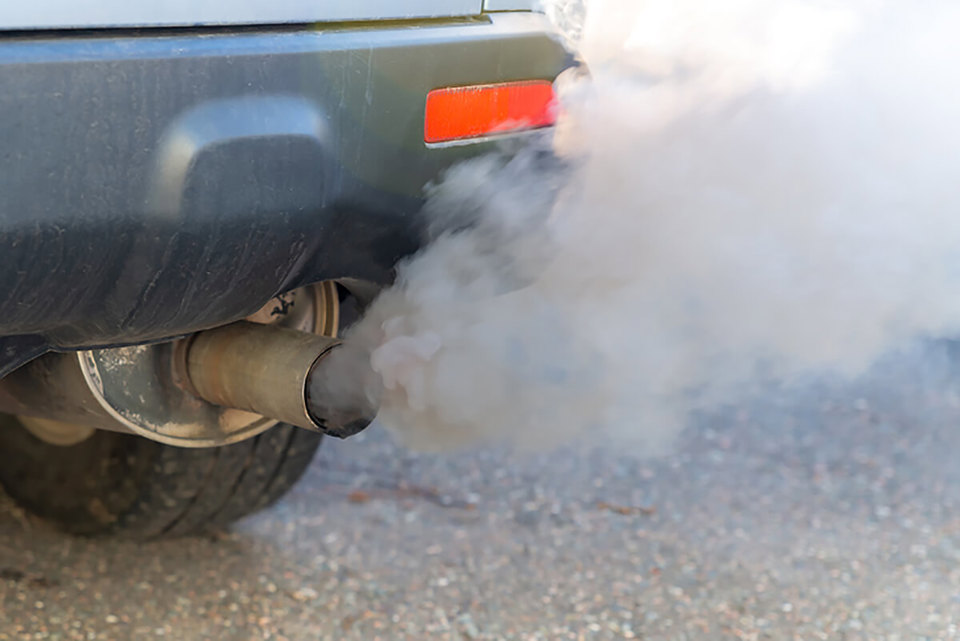Driver ignorance could push petrol back up the fleet agenda if problems persist with diesel particulate filters (DPFs).
Car manufacturers say the only issue with DPF technology is that if a vehicle’s exhaust doesn’t get hot enough to burn off the collected soot, the filter can become blocked and a dashboard warning light may come on.
This can be down to repeated shorter trips in an urban/stop-start environment.
The exhaust emissions standards for new cars have effectively required fitment of a DPF in the exhaust of diesel cars since 2009 when the Euro 5 standard came into force.
In fact, many cars registered before 2009 will have had one fitted in anticipation of the change in standards.
The standards aim to deliver an 80% reduction in diesel particulate (soot) emissions, but the technology is not without its problems – AA patrols are regularly called to cars with the particulate filter warning light on indicating a partial blockage of the filter.
Even if an employee’s driving isn’t mainly urban/stop-start, changes to driving style may be required to get the most from these systems.
Mears Group operates around 1,200 vehicles within the M25 and is considering the implications of DPF technology as it considers changes to its van fleet. Fleet manager Jo Hammonds said: “For the larger vans it’s not so much of an issue as you will have to take diesel, but for the car-derived vans do we go for a 1.1-litre to 1.2-litre petrol or a 1.4-litre diesel?”
Hammonds added: “Petrol is very much back on the agenda and I think problems with DPFs will sway policy for us in central London.”
The Salvation Army switched its 750-strong car fleet to petrol in 2010 and fleet co-ordinator Peter Bonney says his DPF problems began with some Euro 4 vehicles that had the technology fitted.
“We understood Euro 5 was bringing them in, but what we didn’t know was to achieve Euro 4 some manufacturers had fitted DPFs,” said Bonney. “Manufacturers were not communicating what the issues were with us.”
Peugeot said its DPF technology – badged FAP – has evolved since introduction in 2001 and was now in its third generation. The system is standard on all 2001-built Euro 4 models as well as newer cars.
A spokesman said dealers had traditionally covered DPF unclogging outside of warranty as a goodwill gesture. This generally involves changing the filter or forcing the vehicle through a ‘regeneration’.
He added that the best solution was to avoid the problem in the first place. “All our literature ensures the customer, either fleet or retail, is encouraged to match the vehicle to their needs,” he said.
“We include a specific section on FAP in our academy training and have an e-learning module on this topic for all customer-facing staff.”
A BMW spokesman said drivers should make a journey longer than 30 minutes each week so the exhaust can reach the optimum temperature.
He added that as the DPF blockage wasn’t a design fault, who should pay for repairs is judged on a case-by-case basis.
“There may be other factors that have an impact on the car’s performance and these would be taken into consideration. It would not be sufficient for any issue to be covered by BMW without question,” he explained.
Volkswagen Group said its brands had carried out extensive training with retailers to ensure customers were made aware of the DPF’s existence and maintenance requirements.
“A large amount of small fleet business is done through the dealer network, so our dedicated fleet sales teams ensure the correct car is sold and the right maintenance available,” said a spokesman.
She added that for larger corporate customers the policy was fleet manager education.
Ford said in the case of a DPF failure it needed to understand the full reasons behind it to decide if the repair could be covered under warranty.
“We have updated our dealer training processes to improve understanding of diagnostic read-outs,” said a spokesman.
Ford has also introduced some tips in owner handbooks to help.
These include warning drivers not to park or idle the vehicle over dry leaves, grass or other combustible materials because of the heat generated during regeneration.
Vauxhall confirmed it “does not pay under warranty” for DPF blockages because there is no defect with the vehicle.
Both Ford and Mercedes-Benz DPFs feature an automatic cleaning cycle.
Renault doesn’t have advice in its owner manuals because it says the customer – both fleet and retail – should have been qualified as right for diesel at the point of sale.
“We will cover the first forced regeneration and after that it will become the customer’s responsibility,” said a spokesman.
“If the forced regeneration is required as a result of another factor not linked to conditions of use, then normal warranty conditions would apply.”
The AA advises that it’s important to read the relevant section of the handbook where a vehicle has a DPF fitted, so that the driver understands exactly what actions to take if the warning light illuminates and how, if at all, their driving style may need to be adjusted to ensure maximum DPF efficiency and life.


















Mike S - 26/01/2012 16:16
This is rapidly becoming a big issue but there are new additives available which help the regeneration process on diesels fitted with DPFs. This is alot easier and safer than trying to hurtle round the M25 at high revs just to try and get the exhaust up to temperature. Have a look at this http://www.jlmlubricants.com/jlm-diesel-particulate-filters-cleaner.html